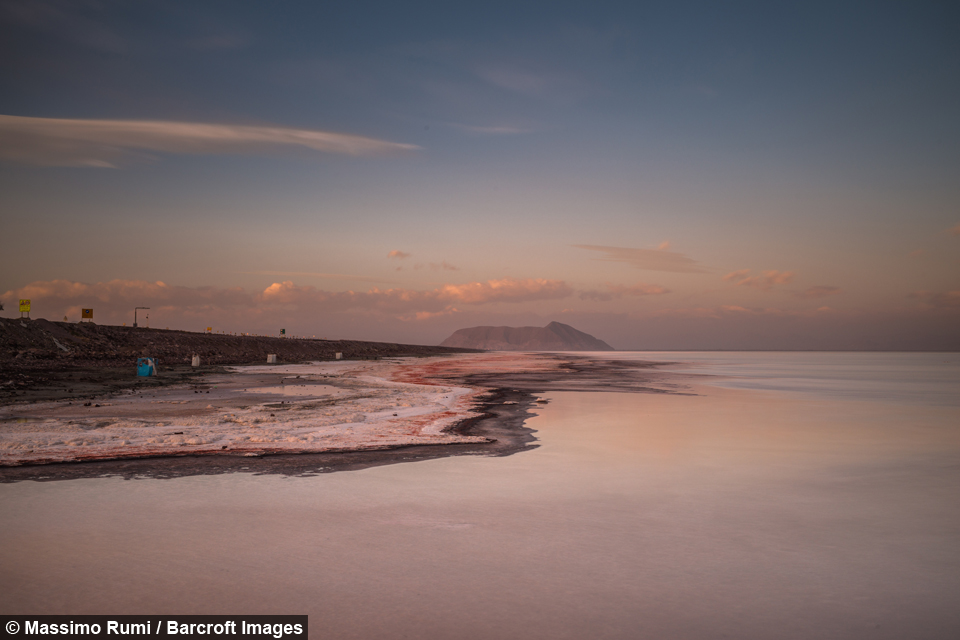The Lake Vanishing From Climate Change
By Shannon Lane @shannonroselane
Scroll down for the full story
The lake once supported a thriving habitat, attracting migratory birds, reptiles, amphibians and a unique brine shrimp species.
Now due to increased demands for agricultural water from the lake’s basin, the concentration of the salt in the lake has risen to more than 300 g/l, so intense that life struggles to maintain itself here.
Italian photographer, Massimo Rumi, visited the lake in November 2016 to investigate these devastating effects.
He said: "We always hear about climate change, but it’s only when we see things like this that we realise the damage we are doing to our world.
"Here we are talking about an environmental disaster of huge scale that the world cannot ignore. A lake as big as Luxembourg is vastly disappearing. You can search on Google satellite images of the lake as it was back in the 70’s and how it is now, the pictures speaks for itself.”
These salty waters were once the main attraction to Iran's tourists, believing that bathing in the lake had therapeutic properties.
However the heavy salt on the marshes is now causing problems to local people and the environment surrounding the lake.
Massimo said: "The shrinkage has social and environmental consequences. There are 'salt storms’ which can travel for many miles reducing vegetation growth and causing respiratory illnesses and eye problems.
"People living in villages around the lake will be forced to leave their homeland and move to other parts of Iran."
Unfortunately these desiccated wasteland are from man-made activities such as climate change, dam construction and pumping groundwater from the area.
The photographer said: "There is this long bridge that crosses the lake and connects the provinces of East Azerbaijan and West Azerbaijan. The bridge was completed in November 2008 despite warnings from environmentalists that the construction would contribute to the drying of the lake.
"These are man-made natural disasters and if we do not change our excessive consumeristic behaviour we will see more and more of this."







